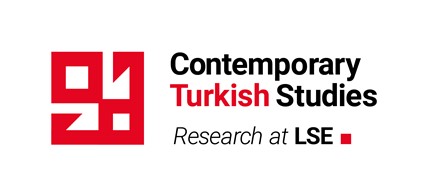
© picture alliance / EPA | SEDAT SUNA

© picture alliance / EPA | SEDAT SUNA

Institute:
Contemporary Turkish Studies at London School of Economics and Political Science (LSE)
Project Members:
Yaprak Gürsoy, Professor of European Politics and Chair of Contemporary Turkish Studies, European Institute, London School of Economics and Political Science (LSE)
Kemal Kirişci, Non-resident Senior Fellow, Center on the United States and Europe, Brookings Foreign Policy
Friedrich Püttmann, PhD candidate, European Institute, London School of Economics and Political Science (LSE)
Project Duration: Dec 2023 - Dec 2024
Contact:
Yaprak Gürsoy, y.gursoy@lse.ac.uk
Kemal Kirişci, kkirisci@brookings.edu
Friedrich Püttmann, f.puttmann@lse.ac.uk
This CATS Network project was a study of the political feasibility of the UNDP’s Türkiye Compact. Specifically, the project aimed to determine the prospects of the EU, the UK, and Switzerland adopting and implementing the Compact.
The Compact intended to enhance the self-reliance of refugees in Turkey and the resilience of their host communities. The genesis of the idea lay in the 2018 Global Compact on Refugees (GCR), which was adopted by 181 countries, including all EU member states except Hungary. The GCR advocated for achieving these goals through various policies, one of which involved extending trade facilitation to countries hosting large numbers of refugees. This strategy aimed to incentivize the formal employment of refugees. Accordingly, the EU, the UK, and Switzerland would extend trade concessions to incentivize businesses in the agricultural and processed food sectors to provide sustainable formal employment for both refugees and Turkish citizens. Such an approach went significantly beyond the current dominant paradigm, most recently expressed in a report by the European Council on Foreign Relations (ECFR), which continued to seek the inclusion of refugees through aid-driven programmes rather than self-sustaining economic opportunities. That said, the creation of such new economic opportunities could be coupled with more targeted programmes for greater social cohesion between Syrian refugees and Turkish citizens through joint labour activities – another avenue explored by the project.
The UNDP’s economic feasibility study had covered the EU, Canada, and the United States, whereas the present study focused on the EU, the UK, and Switzerland. With this in mind, the main research questions of the study were:
The legacy of the 2015 refugee crisis still affects migration policy across Europe, as reflected in the EU’s New Pact on Migration and Asylum as well as recent national policy initiatives and election results in various EU member states. In response to the need to develop more sustainable migration and refugee policies, this report formulates recommendations on how the United Nations Development Programme UNDP’s proposal for a “Türkiye Compact” (TC) could contribute to addressing this challenge and offer more sustainable long-term solutions for Turkey, its Syrian refugees and the EU.
CATS Network Paper, No. 17, 17 June 2025, 61 Pages
moreIs it Politically Feasible?
The legacy of the 2015 refugee crisis still affects migration policy across Europe, as reflected in the EU’s New Pact on Migration and Asylum, recent national policy initiatives and election results in various EU member states. In response to this need to develop more sustainable migration and refugee policies, this policy brief formulates recommendations on how the United Nations Development Programme’s proposal for a Türkiye Compact could contribute to addressing this challenge and offer long-term solutions for Turkey, its Syrian refugees and the EU. Despite all obstacles, the Türkiye Compact has the potential to also become a general model for future cooperation on migration and refugees between the Global North and Global South.
CATS Network Brief, No. 01, 03 December 2024, 16 Pages
moreThe United Nations Development Programme has proposed a “Türkiye Compact” that would see Turkey receive trade facilitation if it agrees to provide better formal employment opportunities for refugees living in the country. Friedrich Püttmann and Kemal Kirişci argue the plan would have key advantages for both Turkey and Europe.
in: London School of Economics and Political Science (LSE), LSE Comment, 23.01.2024 (online)
morein: Brookings, Commentary, 08.12.2023 (online)
more